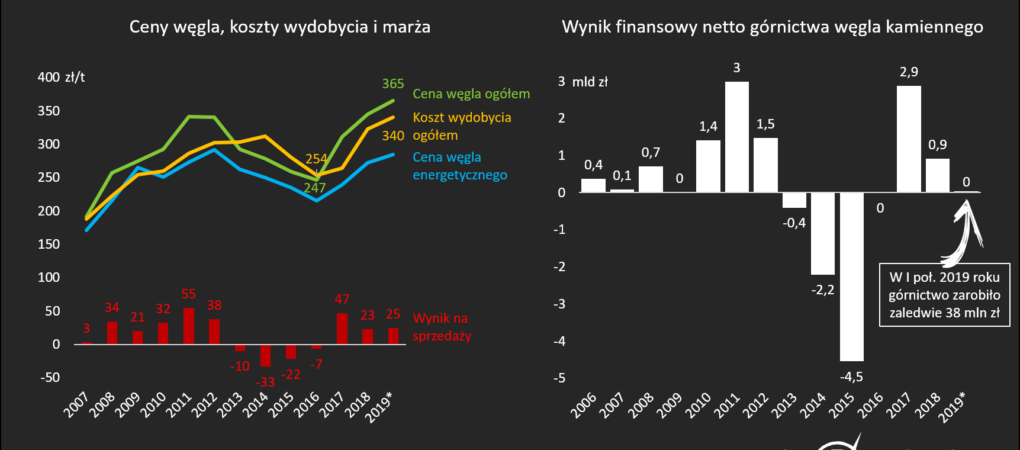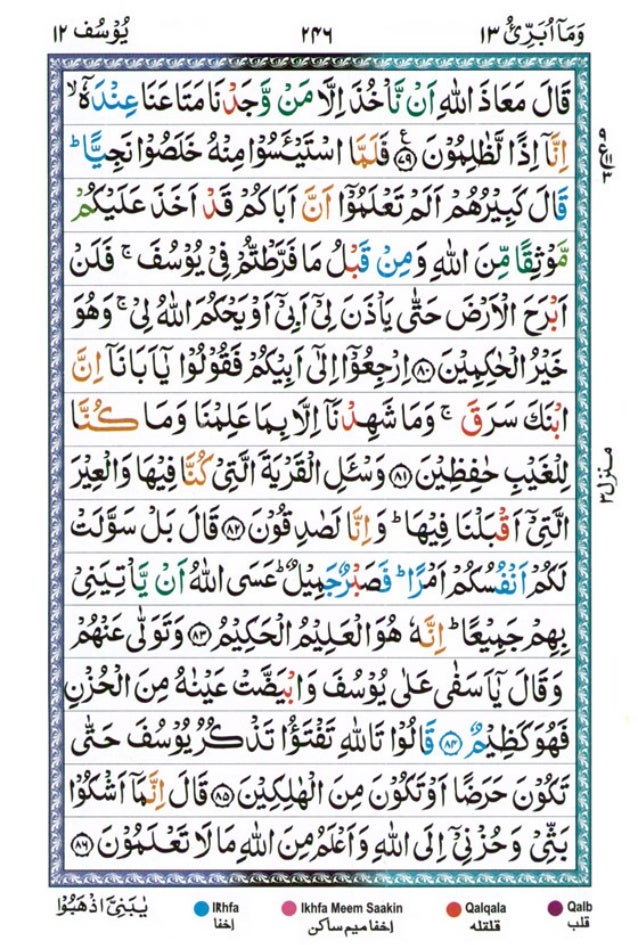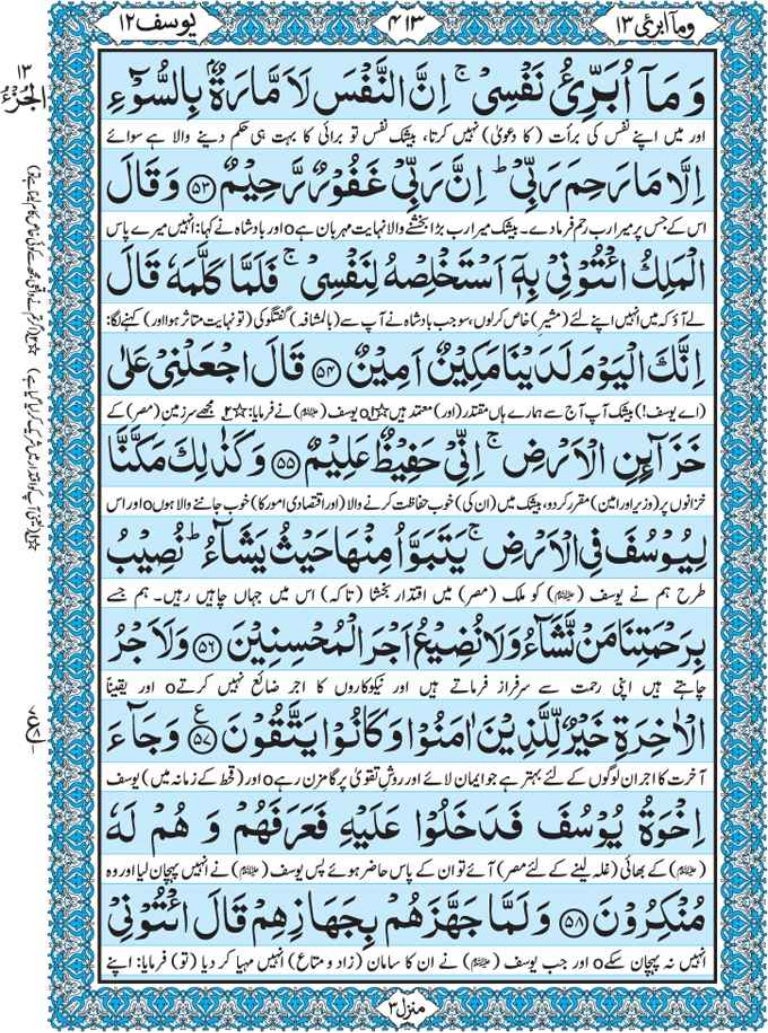Lesson 125: Yusuf 58-87 Lesson 129: Ibrahim 1-17 Lesson 126: Yusuf 88-111 Lesson 130: Ibrahim 18-34 Lesson 127: Al-Ra'd 1-17 Lesson 131: Ibrahim 35-52. The Noble Qur'an (Compare all Quran Translations in English) The Noble Qur'an (Read Qur'an in English, Listen Qur'an) 1. Surah Al-Fatiha The Opening 2. Surah Al-Baqarah The Cow 3. Surah Al Imran Th. The Noble Qur'an (Read Qur'an in English, Listen Qur'an) / The. Juz 13 Al- uran Arabic IndoPak.

| Quran |
|---|
|
|
|
A juzʼ (Arabic: جُزْءْ, plural: أَجْزَاءْajzāʼ,[1] literally meaning 'part') is one of thirty parts of varying lengths into which the Quran is divided.[2][3] It is also known as para (پارہ/পারা) in Iran and the subcontinent.
Division into ajzāʼ has no relevance to the meaning of the Qurʼān and anyone can start reading from anywhere in the Qurʼān.[4] During medieval times, when it was too costly for most Muslims to purchase a manuscript, copies of the Qurʼān were kept in mosques and made accessible to people; these copies frequently took the form of a series of thirty parts (juzʼ).[5] Some use these divisions to facilitate recitation of the Qurʼān in a month—such as during Ramadan,[2][3] when the entire Qurʼān is recited in the Tarawih prayers, typically at the rate of one juzʼ a night.
A juzʼ is further divided into ḥizbāni (lit. 'two groups', singular: ḥizb, plural: aḥzāb), therefore, there are 60 aḥzāb. Each ḥizb (group) is subdivided into four quarters, making eight quarters per juzʼ, called maqraʼ (lit. 'reading'). There are 240 of these quarters (maqraʼs) in the Qurʼān. These maqraʼ are often used as practical sections for revision when memorizing the Qurʼān.[6]
The most commonly memorized juzʼ is juzʼ ‘amma, the 30th juzʼ, containing chapters (sūrah) 78 through 114, with most of the shortest chapters of the Qurʼān. Juzʼ ‘amma is named, like most ajzāʼ, after the 1st word of its 1st verse (in this case chapter 78).[7]
| Juz' | Hizb (1/2 part) | Surahs (from chapter - to chapter) | |||
|---|---|---|---|---|---|
| No. | Name (Āyah - verse begins with) | ||||
| Arabic | English | Meaning | |||
| 1 | (آلم (آ-ل-م | Alīf-Lām-Mīm | 'Alif-Lam-Mim' | 1 | Al-Fatiha (1:1) - Al-Baqarah (2:74) |
| 2 | Al-Baqarah (2:75) - Al-Baqarah (2:141) | ||||
| 2 | سَيَقُولُ | Sayaqūlu | 'Will (they) say' | 3 | Al-Baqarah (2:142) - Al-Baqarah (2:202) |
| 4 | Al-Baqarah (2:203) - Al-Baqarah (2:252) | ||||
| 3 | تِلْكَ ٱلْرُّسُلُ | Tilka ’r-Rusulu | 'These are the Messengers' | 5 | Al-Baqarah (2:253) - Āli ‘Imrān (3:14) |
| 6 | Āli ‘Imrān (3:15) - Āli ‘Imrān (3:92) | ||||
| 4 | لَنْ تَنَالُوْ الْبِرَّ | Lan tanaloo albirra | 'Never will you attain the good [reward]' | 7 | Āli ‘Imrān (3:93) - Āli ‘Imrān (3:170) |
| 8 | Āli ‘Imrān (3:171) - An-Nisā’ (4:23) | ||||
| 5 | وَٱلْمُحْصَنَاتُ | Wa’l-muḥṣanātu | 'And prohibited are the ones who are married' | 9 | An-Nisā’ (4:24) - An-Nisā’ (4:87) |
| 10 | An-Nisā’ (4:88) - An-Nisā’ (4:147) | ||||
| 6 | لَا يُحِبُّ ٱللهُ | Lā yuḥibbu-’llāhu | 'Allah does not like' | 11 | An-Nisā’ (4:148) - Al-Mā’idah (5:26) |
| 12 | Al-Mā’idah (5:27) - Al-Mā’idah (5:81) | ||||
| 7 | وَإِذَا سَمِعُوا | Wa ’Idha Samiʿū | 'Surely you will find the most strongest (intense)' | 13 | Al-Mā’idah (5:82) - Al-An‘ām (6:35) |
| 14 | Al-An‘ām (6:36) - Al-An‘ām (6:110) | ||||
| 8 | وَلَوْ أَنَّنَا | Wa-law annanā | 'And (even) if (that) we had' | 15 | Al-An‘ām (6:111) - Al-An‘ām (6:165) |
| 16 | Al-A‘rāf (7:1) - Al-A‘rāf (7:87) | ||||
| 9 | قَالَ ٱلْمَلَأُ | Qāla ’l-mala’u | 'Said the chiefs (eminent ones)' | 17 | Al-A‘rāf (7:88) - Al-A‘rāf (7:170) |
| 18 | Al-A‘rāf (7:171) - Al-Anfāl (8:40) | ||||
| 10 | وَٱعْلَمُواْ | Wa-’aʿlamū | 'And (you) know' | 19 | Al-Anfāl (8:41) - At-Tawbah (9:33) |
| 20 | At-Tawbah (9:34) - At-Tawbah (9:92) | ||||
| 11 | يَعْتَذِرُونَ | Yaʿtazerūn | 'Only the way (for blame)' | 21 | At-Tawbah (9:93) - Yũnus (10:25) |
| 22 | Yũnus (10:26) - Hūd (11:5) | ||||
| 12 | وَمَا مِنْ دَآبَّةٍ | Wa mā min dābbatin | 'And there is no creature' | 23 | Hūd (11:6) - Hūd (11:83) |
| 24 | Hūd (11:84) - Yūsuf (12:52) | ||||
| 13 | وَمَا أُبَرِّئُ | Wa mā ubarri’u | 'And I do not acquit' | 25 | Yūsuf (12:53) - Ar-Ra‘d (13:18) |
| 26 | Ar-Ra‘d (13:19) - Ibrāhīm (14:52) | ||||
| 14 | رُبَمَا | Alīf-Lām-Rā’/ Rubamā | 'Alif-Lam-Ra'/ 'Perhaps' | 27 | Al-Hijr (15:1) - An-Naḥl (16:50) |
| 28 | An-Naḥl (16:51) - An-Naḥl (16:128) | ||||
| 15 | سُبْحَانَ ٱلَّذِى | Subḥāna ’lladhī | 'Exalted is the One (Allahu ‘Azza wa-jalla) is who ' | 29 | Al-Isrā’ (17:1) - Al-Isrā’ (17:98) |
| 30 | Al-Isrā’ (17:99) - Al-Kahf (18:74) | ||||
| 16 | قَالَ أَلَمْ | Qāla ’alam | 'He (Al-Khidr) said: Did not' | 31 | Al-Kahf (18:75) - Maryam (19:98) |
| 32 | Ṭā Hā (20:1) - Ṭā Hā (20:135) | ||||
| 17 | ٱقْتَرَبَ لِلْنَّاسِ | Iqtaraba li’n-nāsi | 'Has (the time of) approached for Mankind (people)' | 33 | Al-Anbiyāʼ (21:1) - Al-Anbiyāʼ (21:112) |
| 34 | ِAl-Ḥajj (22:1) - Al-Ḥajj (22:78) | ||||
| 18 | قَدْ أَفْلَحَ | Qad ’aflaḥa | 'Indeed (Certainly) successful' | 35 | Al-Muʼminūn (23:1) - An-Nūr (24:20) |
| 36 | An-Nūr (24:21) - Al-Furqān (25:20) | ||||
| 19 | وَقَالَ ٱلَّذِينَ | Wa-qāla ’lladhīna | 'And said those who' | 37 | Al-Furqān (25:21) - Ash-Shu‘arā’ (26:110) |
| 38 | Ash-Shu‘arā’ (26:111) - An-Naml (27:55) | ||||
| 20 | أَمَّنْ خَلَقَ | ’A’man Khalaqa | 'Is He Who created…' | 39 | An-Naml (27:56) - Al-Qaṣaṣ (28:50) |
| 40 | Al-Qaṣaṣ (28:51) - Al-‘Ankabūt (29:45) | ||||
| 21 | أُتْلُ مَاأُوْحِیَ | Otlu ma oohiya | 'Recite, [O Muhammad], what has been revealed to you' | 41 | Al-‘Ankabūt (29:46) - Luqmān (31:21) |
| 42 | Luqmān (31:22) - Al-Aḥzāb (33:30) | ||||
| 22 | وَمَنْ يَّقْنُتْ | Wa-man yaqnut | 'And whoever is obedient (devoutly obeys)' | 43 | Al-Aḥzāb (33:31) - Saba’ (34:23) |
| 44 | Saba’ (34:24) - Yā Sīn (36:27) | ||||
| 23 | وَمَآ لي | Wa-Mali | 'And what happened to me' | 45 | Yā Sīn (36:28) - Aṣ-Ṣāffāt (37:144) |
| 46 | Aṣ-Ṣāffāt (37:145) - Az-Zumar (39:31) | ||||
| 24 | فَمَنْ أَظْلَمُ | Fa-man ’aẓlamu | 'So who is more unjust' | 47 | Az-Zumar (39:32) - Ghāfir (40:40) |
| 48 | Ghāfir (40:41) - Fuṣṣilat (41:46) | ||||
| 25 | إِلَيْهِ يُرَدُّ | Ilayhi yuraddu | 'To Him (Allahu Subhanahu wa-Ta'ala) alone is attributed' | 49 | Fuṣṣilat (41:47) - Az-Zukhruf (43:23) |
| 50 | Az-Zukhruf (43:24) - Al-Jāthiyah (45:37) | ||||
| 26 | حم | Ḥā’ Mīm | Ha-Mim | 51 | Al-Aḥqāf (46:1) - Al-Fatḥ (48:17) |
| 52 | Al-Fatḥ (48:18) - Adh-Dhāriyāt (51:30) | ||||
| 27 | قَالَ فَمَا خَطْبُكُم | Qāla fa-mā khaṭbukum | He (Ibrahim A.S.) said: 'Then what is your business (mission) here' | 53 | Adh-Dhāriyāt (51:31) - Al-Qamar (54:55) |
| 54 | Ar-Raḥmān (55:1) - Al-Ḥadīd (57:29) | ||||
| 28 | قَدْ سَمِعَ ٱللهُ | Qad samiʿa ’llāhu | 'Indeed has Allah heard' | 55 | Al-Mujādilah (58:1) - Aṣ-Ṣaff (61:14) |
| 56 | Al-Jumu`ah (62:1) - At-Taḥrīm (66:12) | ||||
| 29 | تَبَارَكَ ٱلَّذِى | Tabāraka ’lladhī | 'Blessed is He (Allah Subhanahu wa-Ta'ala)' | 57 | Al-Mulk (67:1) - Nūḥ (71:28) |
| 58 | Al-Jinn (72:1) - Al-Mursalāt (77:50) | ||||
| 30 | عَمَّ | ‘Amma | 'About what' | 59 | An-Nabaʼ (78:1) - Aṭ-Ṭāriq (86:17) |
| 60 | Al-Aʻlā (87:1) - An-Nās (114:6) | ||||
| Ḥizb Number: | 1st Quarter | 2nd Quarter | 3rd Quarter | 4th Quarter | Total: |
|---|---|---|---|---|---|
| 1 | 32 (1:1-2:25) | 18 (2:26-2:43) | 16 (2:44-2:59) | 15 (2:60-2:74) | 81 |
| 2 | 17 (2:75-2:91) | 14 (2:92-2:105) | 18 (2:106-2:123) | 18 (2:124-2:141) | 67 |
| 3 | 16 (2:142-2:157) | 19 (2:158-2:176) | 12 (2:177-2:188) | 14 (2:189-2:202) | 61 |
| 4 | 16 (2:203-2:218) | 14 (2:219-2:232) | 10 (2:233-2:242) | 10 (2:243-2:252) | 50 |
| 5 | 10 (2:253-2:262) | 9 (2:263-2:271) | 11 (2:272-2:282) | 18 (2:283-3:14) | 48 |
| 6 | 18 (3:15-3:32) | 19 (3:33-3:51) | 23 (3:52-3:74) | 18 (3:75-3:92) | 78 |
| 7 | 20 (3:93-3:112) | 20 (3:113-3:132) | 20 (3:133-3:152) | 18 (3:153-3:170) | 78 |
| 8 | 15 (3:171-3:185) | 15 (3:186-3:200) | 11 (4:1-4:11) | 12 (4:12-4:23) | 53 |
| 9 | 12 (4:24-4:35) | 22 (4:36-4:57) | 16 (4:58-4:73) | 14 (4:74-4:87) | 64 |
| 10 | 12 (4:88-4:99) | 14 (4:100-4:113) | 21 (4:114-4:134) | 13 (4:135-4:147) | 60 |
| 11 | 15 (4:148-4:162) | 14 (4:163-4:176) | 11 (5:1-5:11) | 15 (5:12-5:26) | 55 |
| 12 | 14 (5:27-5:40) | 10 (5:41-5:50) | 16 (5:51-5:66) | 15 (5:67-5:81) | 55 |
| 13 | 15 (5:82-5:96) | 12 (5:97-5:108) | 24 (5:109-6:12) | 23 (6:13-6:35) | 74 |
| 14 | 23 (6:36-6:58) | 15 (6:59-6:73) | 21 (6:74-6:94) | 16 (6:95-6:110) | 75 |
| 15 | 16 (6:111-6:126) | 14 (6:127-6:140) | 10 (6:141-6:150) | 15 (6:151-6:165) | 55 |
| 16 | 30 (7:1-7:30) | 16 (7:31-7:46) | 18 (7:47-7:64) | 23 (7:65-7:87) | 87 |
| 17 | 29 (7:88-7:116) | 25 (7:117-7:141) | 14 (7:142-7:155) | 15 (7:156-7:170) | 83 |
| 18 | 18 (7:171-7:188) | 18 (7:189-7:206) | 21 (8:1-8:21) | 19 (8:22-8:40) | 76 |
| 19 | 20 (8:41-8:60) | 15 (8:61-8:75) | 18 (9:1-9:18) | 15 (9:19-9:33) | 68 |
| 20 | 12 (9:34-9:45) | 14 (9:46-9:59) | 15 (9:60-9:74) | 18 (9:75-9:92) | 59 |
| 21 | 18 (9:93-9:110) | 11 (9:111-9:121) | 18 (9:122-10:10) | 15 (10:11-10:25) | 62 |
| 22 | 27 (10:26-10:52) | 18 (10:53-10:70) | 19 (10:71-10:89) | 25 (10:90-11:5) | 89 |
| 23 | 18 (11:6-11:23) | 17 (11:24-11:40) | 20 (11:41-11:60) | 23 (11:61-11:83) | 78 |
| 24 | 24 (11:84-11:107) | 22 (11:108-12:6) | 23 (12:7-12:29) | 23 (12:30-12:52) | 92 |
| 25 | 24 (12:53-12:76) | 24 (12:77-12:100) | 15 (12:101-13:4) | 14 (13:5-13:18) | 77 |
| 26 | 16 (13:19-13:34) | 18 (13:35-14:9) | 18 (14:10-14:27) | 25 (14:28-14:52) | 77 |
| 27 | 48 (15:1-15:48) | 51 (15:49-15:99) | 29 (16:1-16:29) | 21 (16:30-16:50) | 149 |
| 28 | 24 (16:51-16:74) | 15 (16:75-16:89) | 21 (16:90-16:110) | 18 (16:111-16:128) | 78 |
| 29 | 22 (17:1-17:22) | 27 (17:23-17:49) | 20 (17:50-17:69) | 29 (17:70-17:98) | 98 |
| 30 | 29 (17:99-18:16) | 15 (18:17-18:31) | 19 (18:32-18:50) | 24 (18:51-18:74) | 87 |
| 31 | 24 (18:75-18:98) | 33 (18:99-19:21) | 37 (19:22-19:58) | 40 (19:59-19:98) | 134 |
| 32 | 54 (20:1-20:54) | 28 (20:55-20:82) | 28 (20:83-20:110) | 25 (20:111-20:135) | 135 |
| 33 | 28 (21:1-21:28) | 22 (21:29-21:50) | 32 (21:51-21:82) | 30 (21:83-21:112) | 112 |
| 34 | 18 (22:1-22:19) | 19 (22:20-22:37) | 22 (22:38-22:59) | 19 (22:60-22:78) | 78 |
| 35 | 35 (23:1-23:35) | 39 (23:36-23:74) | 44 (23:75-23:118) | 20 (24:1-24:20) | 138 |
| 36 | 14 (24:21-24:34) | 18 (24:35-24:52) | 12 (24:53-24:64) | 20 (25:1-25:20) | 64 |
| 37 | 32 (25:21-25:52) | 25 (25:53-25:77) | 51 (26:1-26:51) | 59 (26:52-26:110) | 167 |
| 38 | 70 (26:111-26:180) | 47 (26:181-26:227) | 26 (27:1-27:26) | 29 (27:27-27:55) | 172 |
| 39 | 26 (27:56-27:81) | 23 (27:82-28:11) | 17 (28:12-28:28) | 22 (28:29-28:50) | 88 |
| 40 | 25 (28:51-28:75) | 13 (28:76-28:88) | 25 (29:1-29:25) | 20 (29:26-29:45) | 83 |
| 41 | 24 (29:46-29:69) | 30 (30:1-30:30) | 23 (30:31-30:53) | 28 (30:54-31:21) | 105 |
| 42 | 23 (31:22-32:10) | 20 (32:11-32:30) | 17 (33:1-33:17) | 13 (33:18-33:30) | 73 |
| 43 | 20 (33:31-33:50) | 9 (33:51-33:59) | 23 (33:60-34:9) | 14 (34:10-34:23) | 66 |
| 44 | 22 (34:24-34:45) | 23 (34:46-35:14) | 26 (35:15-35:40) | 32 (35:41-36:27) | 103 |
| 45 | 32 (36:28-36:59) | 45 (36:60-37:21) | 61 (37:22-37:82) | 62 (37:83-37:144) | 200 |
| 46 | 58 (37:145-38:20) | 31 (38:21-38:51) | 44 (38:52-39:7) | 24 (39:8-39:31) | 157 |
| 47 | 21 (39:32-39:52) | 23 (39:53-39:75) | 20 (40:1-40:20) | 20 (40:21-40:40) | 84 |
| 48 | 25 (40:41-40:65) | 28 (40:66-41:8) | 16 (41:9-41:23) | 22 (41:24-41:46) | 91 |
| 49 | 20 (41:47-42:12) | 14 (42:13-42:26) | 24 (42:27-42:50) | 26 (42:51-43:23) | 84 |
| 50 | 33 (43:24-43:56) | 49 (43:57-44:16) | 54 (44:17-45:11) | 26 (45:12-45:37) | 162 |
| 51 | 20 (46:1-46:20) | 24 (46:21-47:9) | 23 (47:10-47:32) | 23 (47:33-48:17) | 90 |
| 52 | 12 (48:18-48:29) | 13 (49:1-49:13) | 31 (49:14-50:26) | 49 (50:27-51:31) | 105 |
| 53 | 53 (51:32-52:23) | 51 (52:24-53:25) | 45 (53:26-54:8) | 47 (54:9-54:55) | 196 |
| 54 | 78 (55:1-55:78) | 74 (56:1-56:74) | 37 (56:75-57:15) | 14 (57:16-57:29) | 203 |
| 55 | 13 (58:1-58:13) | 19 (58:14-59:10) | 20 (59:11-60:6) | 21 (60:7-61:14) | 73 |
| 56 | 14 (62:1-63:3) | 26 (63:4-64:18) | 12 (65:1-65:12) | 12 (66:1-66:12) | 64 |
| 57 | 30 (67:1-67:30) | 52 (68:1-68:52) | 70 (69:1-70:18) | 54 (70:19-71:28) | 206 |
| 58 | 47 (72:1-73:19) | 57 (73:20-74:56) | 58 (75:1-76:18) | 63 (76:19-77:50) | 225 |
| 59 | 86 (78:1-79:46) | 71 (80:1-81:29) | 55 (82:1-83:36) | 64 (84:1-86:17) | 276 |
| 60 | 75 (87:1-89:30) | 67 (90:1-93:11) | 67 (94:1-100:11) | 79 (101:1-114:6) | 288 |
| Totals: | 1,642 | 1,528 | 1,548 | 1,518 | 6,236 |
See also[edit]
- Rub el Hizb'
References[edit]
- ^Farhad, Massumeh. 'Art of Quran Preview'(PDF). Smithsonian Institution. p. 31. Archived(PDF) from the original on 13 August 2018. Retrieved 13 August 2018.
- ^ ab'BBC - Religions - Islam: The Qur'an'. BBC. 14 July 2011. Archived from the original on 13 August 2018. Retrieved 2018-08-13.
- ^ ab'Quran Technical Observations'. eweb.furman.edu. Archived from the original on 13 August 2018. Retrieved 2018-08-13.
- ^Qurʼān divisions
- ^Déroche, François (2006). Rippin, Andrew (ed.). The Blackwell Companion to the Qur'an. Oxford: John Wiley & Sons. p. 180. ISBN9781405178440.
- ^Razavian, Seiied Mohammad Javad (22 December 2017). 'The quran Package'(PDF). Harvey Mudd College. Archived(PDF) from the original on 13 August 2018. Retrieved 13 August 2018.
- ^ORGANIZATION OF THE QUR'AN by M. Amir Ali ilaam.net


External Links[edit]
Menu
Quran Para 1
A Juz or Para of the Qur’an is just the division of the Qur’an into 30 distinct sections. This has no significance or relevance to the meaning of the Qur’an. The purpose for this was to make the reading of the Quran easier, especially during the holy month of Ramadan. The sections are not divided evenly between chapters, it’s simply used to pace the reading so it can that it can be read in thirty days.
Quran Para 13, (Juz 13) spans across three surahs, it starts from Surah Yusuf ayah 53 and continues finishes at Surah Ibrahim ayah 52. In between is Surah Ar-Ra’d.
Juz 13 – Subject and Theme Matter:
The basic theme of Surah Ar-Ra’d is about divine guidance. It helps Muslims understand that Allah is the most powerful, he created this whole universe. He is also all-seeing; he knows everything and nothing can be hidden from him. Allah sent down his Prophets as guides to communities that were losing their ways. Essentially these Prophet served to take people from darkness to light. The Surah mentions Prophet Ibrahim’s prayer when he first established the city of Makkah.
Select Quotes:
Those who have believed and whose hearts are assured by the remembrance of Allah . Unquestionably, by the remembrance of Allah hearts are assured. Those who have believed and done righteous deeds – a good state is theirs and a good return. Surah Ra’d Ayat 28-29
This [Qur’an] is notification for the people that they may be warned thereby and that they may know that He is but one God and that those of understanding will be reminded. Surah Ibrahim Ayat 52
Juz 13 Surah Yusuf
Juz 13 Overview:
| Surahs | Yusuf, Ar-Ra`d, Ibrahim |
| Meccan / Medinan | Meccan : 2 Medinan: 1 |
| Total Ayat | 156 |
| Total Words | 3460 |
Table of Contents
Juz 13 Audio
Quran Para 01
Quran Para 02
Quran Para 03
Quran Para 04
Quran Para 05
Quran Para 06
Quran Para 07
Quran Para 08
Quran Para 09
Quran Para 10
Quran Para 11
Quran Para 12
Quran Para 13
Quran Para 14
Quran Para 15
Quran Para 16
Quran Para 17
Quran Para 18
Quran Para 19
Quran Para 20
Quran Para 21
Quran Para 22
Quran Para 23
Quran Para 24
Quran Para 25
Quran Para 26
Quran Para 27
Quran Para 28
Quran Para 29
Quran Para 30
